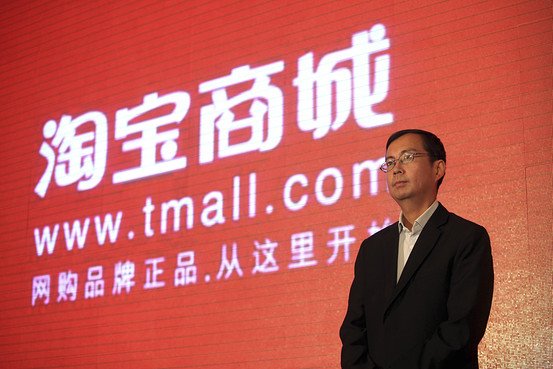BizChina
- Details
- By David Cao
- Hits: 1335

China's Alibaba Group created a new domain for its Taobao Mall business-to-consumer portal, separating the brand from the company's flagship consumer-to-consumer site to give the retail site more prominence.
Taobao Mall, through which such vendors as Adidas AG, Fast Retailing Co.'s Uniqlo and Lenovo Group Ltd. sell goods, now is available through its own Tmall.com Web address. It previously was available primarily through a link on the Taobao.com consumer-to-consumer site.
Read more: Alibaba Gives Taobao Mall Retail Site More Prominence
- Details
- By David Cao
- Hits: 1072
Ping An Insurance Company of China Ltd, China's second-largest life insurer, said Wednesday its net profit in the first three quarters of this year reached 13.2 billion yuan ($2 billion), up 8.4 percent year on year.
But the rate of growth slowed compared with the first two quarters as net profit in the third quarter fell 25.9 percent to 3.1 billion yuan, the company said in a report filed with the Shanghai Stock Exchange.
The company attributed the slower profit growth to decreasing returns from equity investments compared with the same period last year.
Earnings per share for the third quarter were 0.41 yuan, down 29.3 percent year on year.
- Details
- By David Cao
- Hits: 1416
Wahaha Group, China’s largest beverage producer, plans to set up a chain of shopping malls in the fast-growing country in the next few years, Chairman Zong Qinghou said in an interview with Forbes Asia.
Wahaha wants to expand into malls even though growth in China’s beverage industry looks promising at around 20% annually, said Zong, who ranked number one on the new Forbes China Rich List with wealth of $8 billion. “You can say, 20%-plus growth isn’t enough to satisfy Wahaha,” Zong said.
Wahaha competes with multinationals such as Coke and Pepsi. Multinationals have been expanding their product mix in China to include more drinks that appeal to Chinese consumers, challenging Wahaha.
- Details
- By David Cao
- Hits: 1349
Zong Qinghou, the chairman of Chinese beverage industry leader Hangzhou Wahaha Group, may have ranked no. 1 on our latest Forbes China Rich List, but he can hardly rest on his laurels even after ending a bitter dispute with Danone last year over control of joint ventures in China. Wahaha is increasingly being challenged by multinationals like Pepsi, Nestle and Coke that are downplaying their national origin and developing drinks targeted at Chinese consumers.
To find out more, we exchanged this week by email with Matthew Crabbe, a director at market research firm Asia Access. Crabbe is co-author of the new book, “Fat China: How Expanding Waistlines Are Changing A Nation.” Excerpts follow.
Read more: Pepsi, Coke Try to Look Chinese, Challenging Wahaha
- Details
- By YVONNE LEE
- Hits: 1600

China Petroleum & Chemical Corp., or Sinopec, said Friday the company is in talks with BP PLC to explore and develop shale gas resource in China, adding that it plans to bid for six more shale gas blocks to step up its investment in cleaner-burning fuels in the country.
During a conference call with analysts to discuss the company's third-quarter results, Chief Financial Officer Wang Xinhua said the company's arm in eastern China already owns 42 shale gas blocks with a total area of 190,000 square kilometers. "We are now in talks with BP on potential cooperation," he said, but didn't provide further details.
China, which is heavily dependent on imported oil and gas, hopes to replicate the success seen in the U.S. with their own shale gas reserves. So far China has focused on inviting U.S. and European companies into its tightly controlled onshore gas acreage in order to gain technical know-how.
Shale gas is trapped in relatively impermeable rock, and producers need to crack the tight rock formations using streams of water and chemicals.
The Ministry of Land and Resources said Wednesday China plans to auction six shale gas blocks within a month to the country's biggest energy companies, including Sinopec, PetroChina Co., Cnooc Ltd., and Shaanxi Yanchang Petroleum Group.
The auction will involve three blocks in Guizhou province, one in Chongqing municipality, one in Shanxi province, and one along the border between Anhui and Zhejiang provinces. The six blocks are each spread over 6,000-7,000 squared kilometers.
Sinopec imports 70% of its crude oil needs and is therefore more sensitive to a mismatch between domestic and international fuel prices than domestic peers like PetroChina.
In the January-September period, operating profit from Sinopec's refining business fell 61% to 8.49 billion Chinese yuan ($1.27 billion) due to rising fuel costs and government controls on fuel product prices, despite a rise of more than 14% in crude processing volumes.
Wang said the company is optimistic on its fourth-quarter performance following a fuel price increase earlier this week. "We expect the fourth quarter will be a relatively good one for us based on expectations of stable economic growth and demand for our products," he said.
Analysts said they expect Sinopec's refining margins to improve in the fourth quarter. "We estimate this (price hike) could lift the company's refining margin from an average of $5 a barrel to $8 in November given the low-cost inventory on a 50-day time delay," said Shi Yan, an analyst at UOB KayHian. "This should boost its fourth-quarter earnings significantly."
Earlier this week, China raised domestic ex-factory gasoline, diesel and jet fuel prices by 3% to 4% due to higher crude oil prices. Fourteen analysts polled by Thomson Reuters said they expect Sinopec's 2010 net profit to rise to an average of 66.32 billion yuan from 61.8 billion yuan last year.
More Articles …
Page 49 of 120